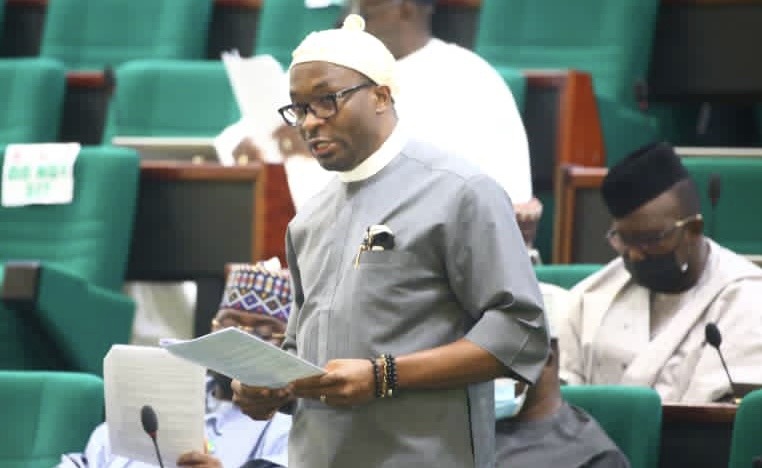President Muhammadu Buhari has signed into law the Bill to amend the 1999 Constitution to move correctional centers from the Exclusive legislative list to the Concurrent legislative list sponsored by Reps Spokesperson and Member representing Bende Federal Constituency, Rep. Benjamin Kalu.
The Bill was listed amongst the 16 bills assented to by Mr. President on Friday, March 17th, 2023 was first read on the 24th of November, 2020, and passed for second reading on the 23rd of February, 2021.
Following the passage of this bill, states will now have the power to establish Correctional and Custodial facilities, and State Assemblies will have the power to legislate over it.
The bill also seeks to enable states to share in the responsibility of prison funding/management which would help check indiscriminate imprisonment of people for minor offenses created by state laws. As well as reduce the instances of violation of prisoners’ dignity and fundamental rights
In the lead debate by Rep. Kalu, he expressed the importance of the bill as a solution to decongest prisons across the country. According to him;
The problem of prison congestion in the country is huge. For instance, the March 2019 edition of the Lagos State Criminal Information System revealed that though the five prisons in Lagos State have a combined holding capacity of 4,087, they were holding 9,044 inmates. A former Comptroller of Prisons in Lagos State, Mr. Tunde Ladipo, said the Badagry Prison, which was built to house only a little over 100 inmates, was at a time holding over 700 inmates. In fact, there are 240 prisons in Nigeria with an official capacity of 50,153 inmates but currently holding over 74,000 inmates. This is an obstacle to the implementation of the Standard Minimum Rules for the Treatment of Prisoners (a.k.a. Mandela Rules) adopted by the United Nations in 2015. Of course, there are also Covid-19 concerns, especially in the context of social distancing protocols.
Concerns have also been raised about the practicability of Section 12(8) of the new Nigerian Correctional Service Act empowering the State Comptroller of Correctional Service to reject additional inmates when the facility under his watch is full. The question that easily comes to mind includes: where will the inmates be taken to? Will such an inmate be released, particularly where he has been alleged to have committed heinous crimes?
More prisons must be built. Achieving total reform of the reformatory institutions in Nigeria won’t be possible until we take deliberate & bold steps to encourage our federating units to be part of the establishment & running of correctional facilities in their respective domains. Once this is done, the federating units can cater for many of the inmates in prisons and correctional centers who committed state offenses and that of course will lessen the burden of the Federal Government.”
The lawmaker reacting to the Presidential Assent commended the President for signing the bill highlighting that it will significantly reduce the current congestion of correctional centers in Nigeria while enhancing the human rights of inmates who are entitled to basic living space. He added this is another milestone for him as a legislator as this is his third bill being signed by the President in his first tenure as a Representative. He said;
“I am glad that my input to constitutional amendment was approved by the Parliament and assented to by Mr. President. I am proud that Bende is part of the effort to present a better constitution for the Federal Republic of Nigeria”
Going forward state offenders will go to State prisons while Federal offenders to Federal prisons.
I thank the Speaker of the House, Rep. Femi Gbajabiamila and the Deputy Speaker Ahmed Idris Wase for their support to this bill since the last three years”
He stated that he remains committed to developing legislative solutions to the problems faced by Nigerians in various sectors stressing that he is geared for more in the 10th Assembly.

